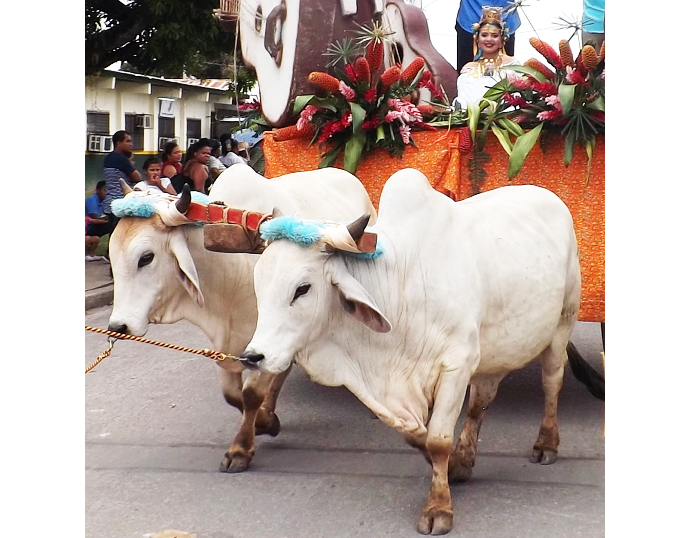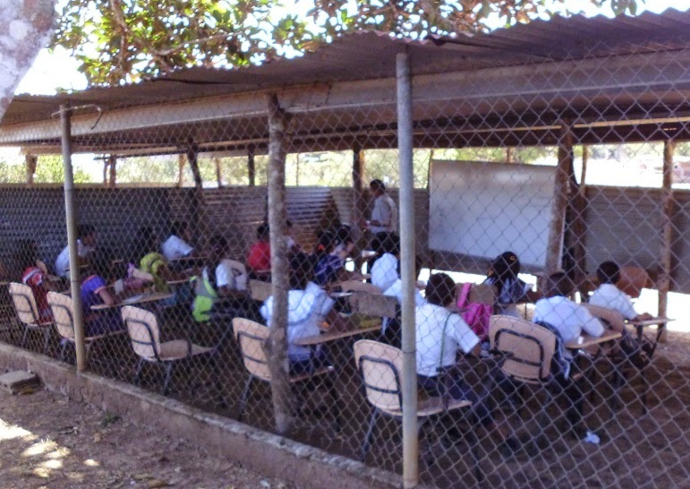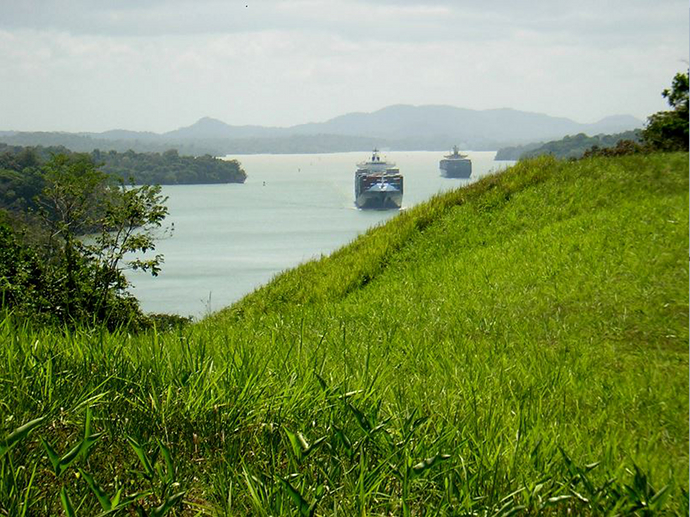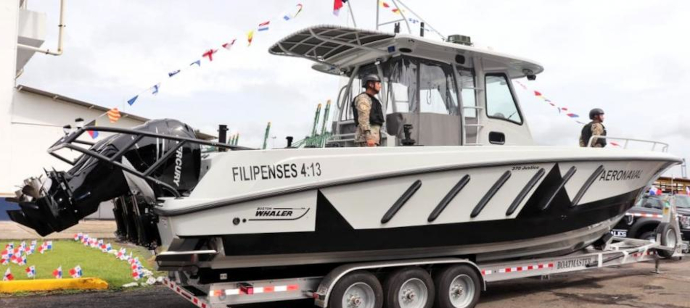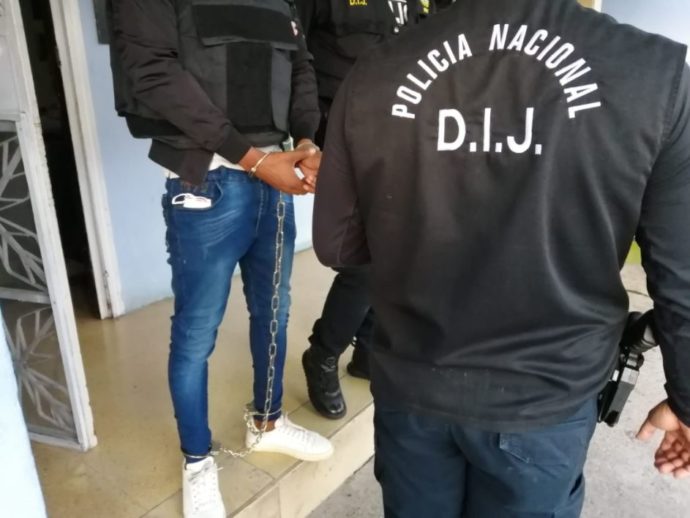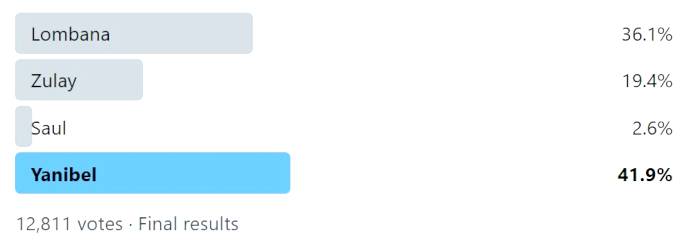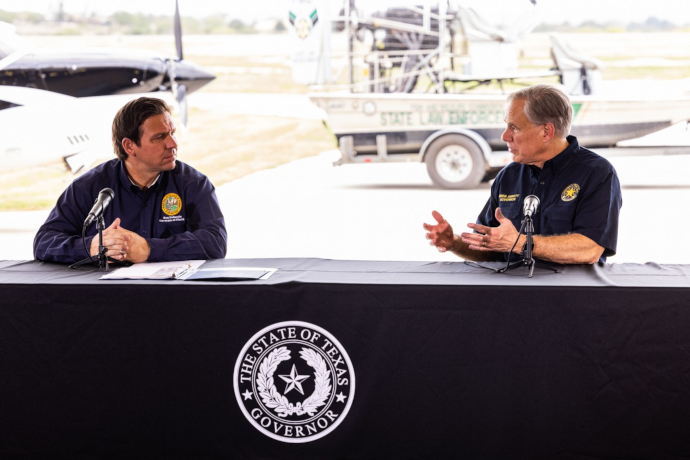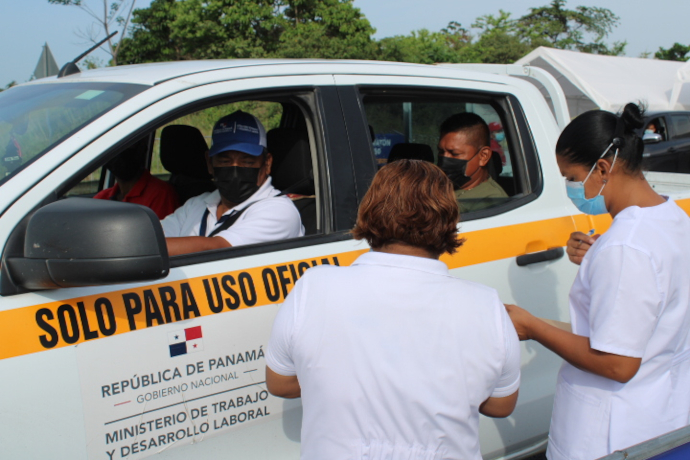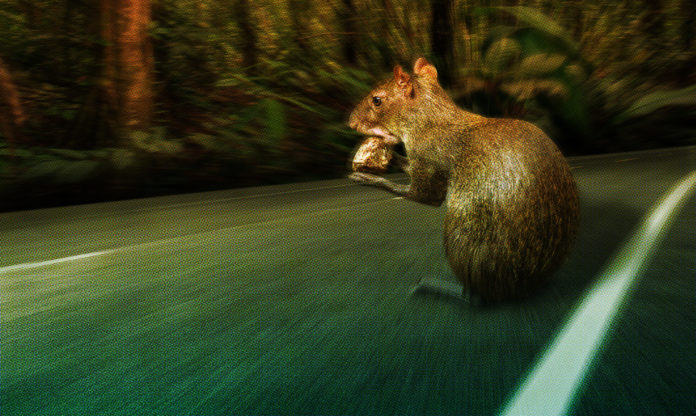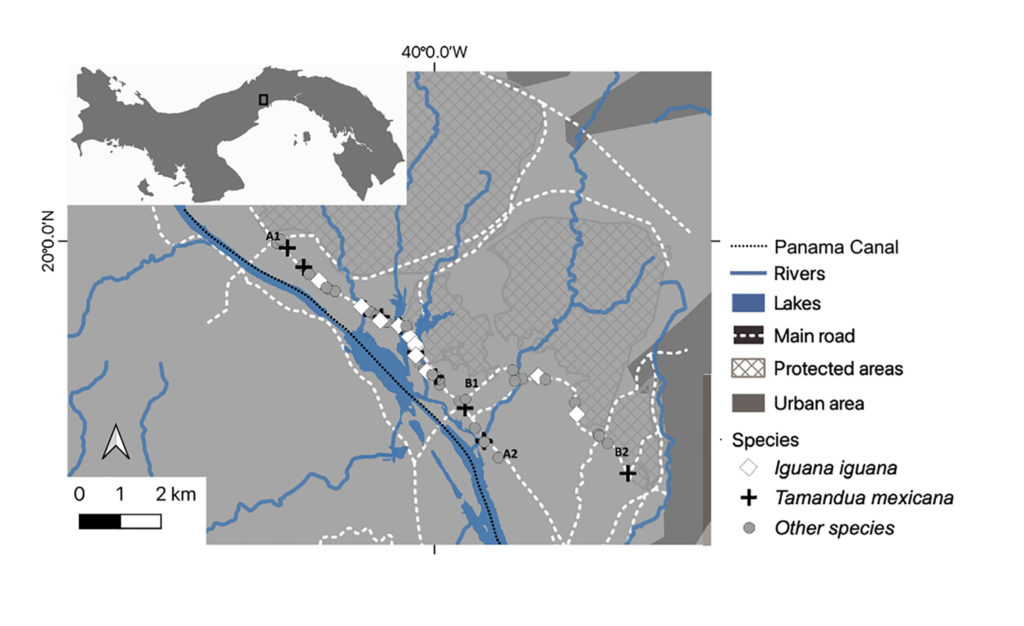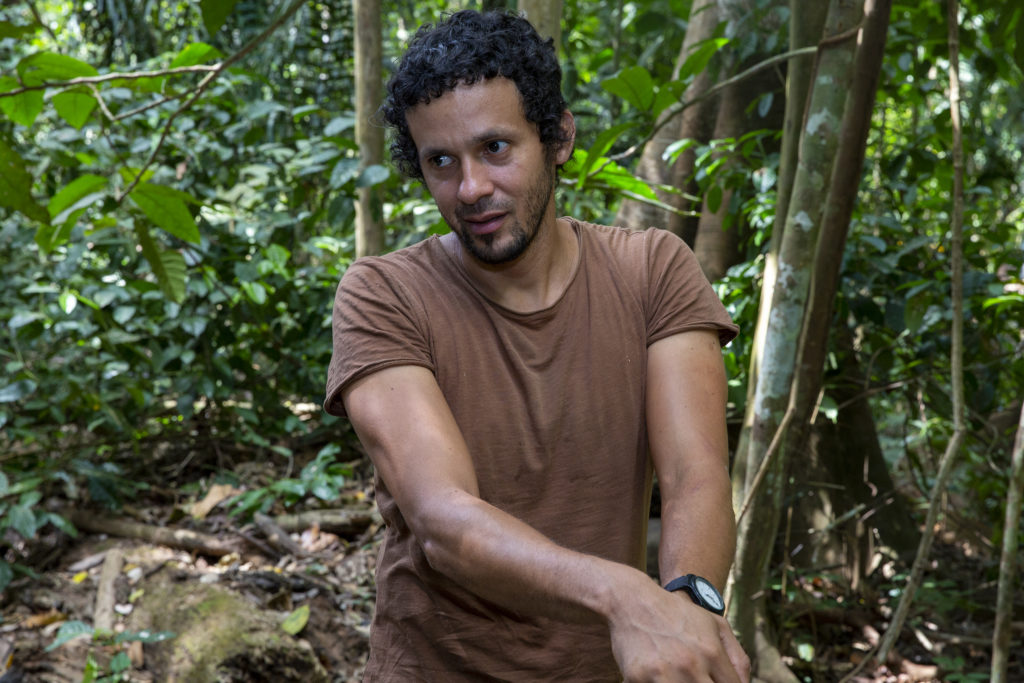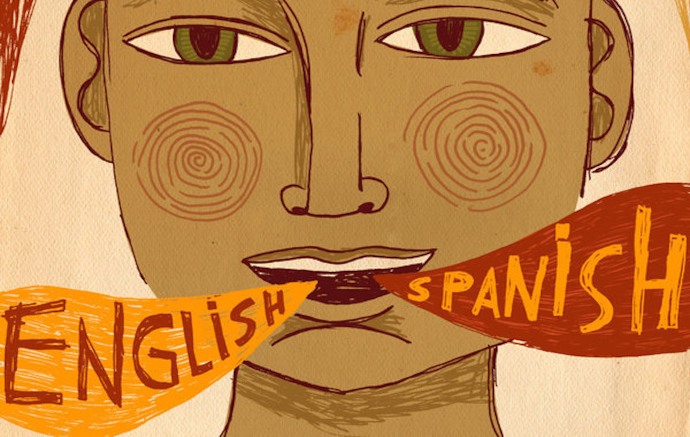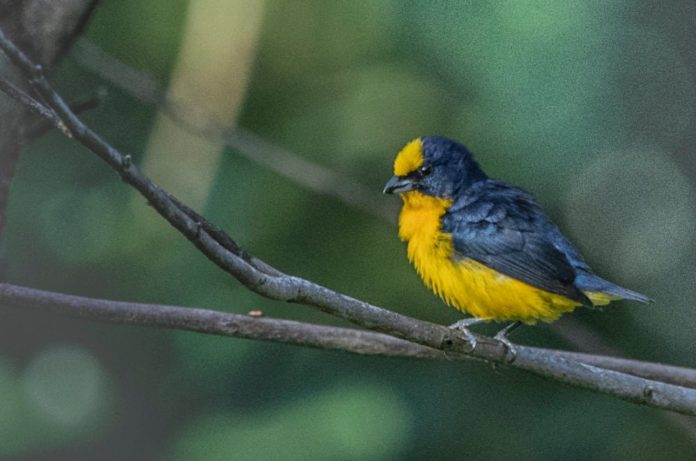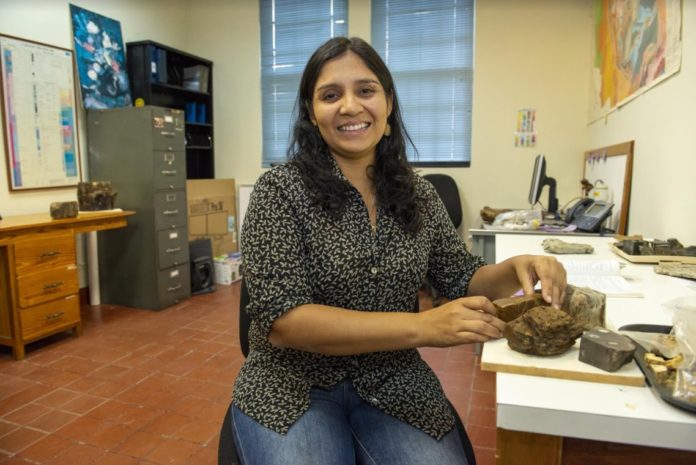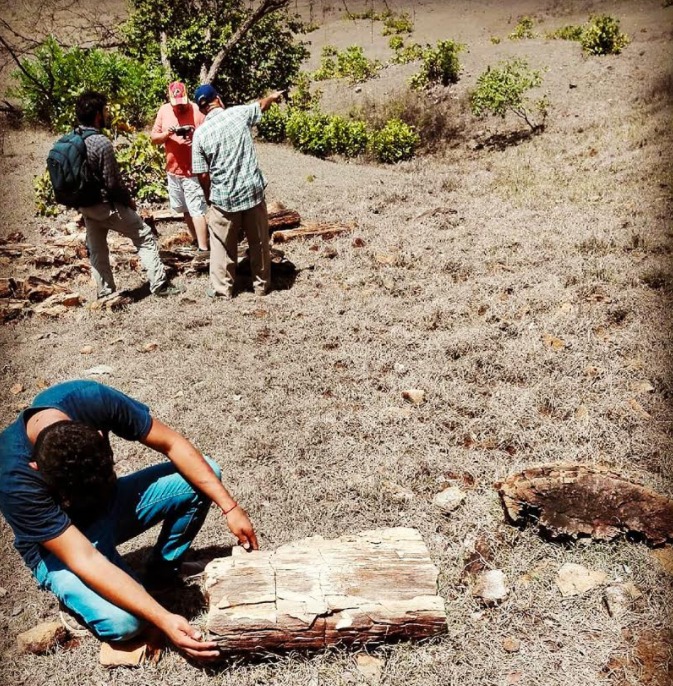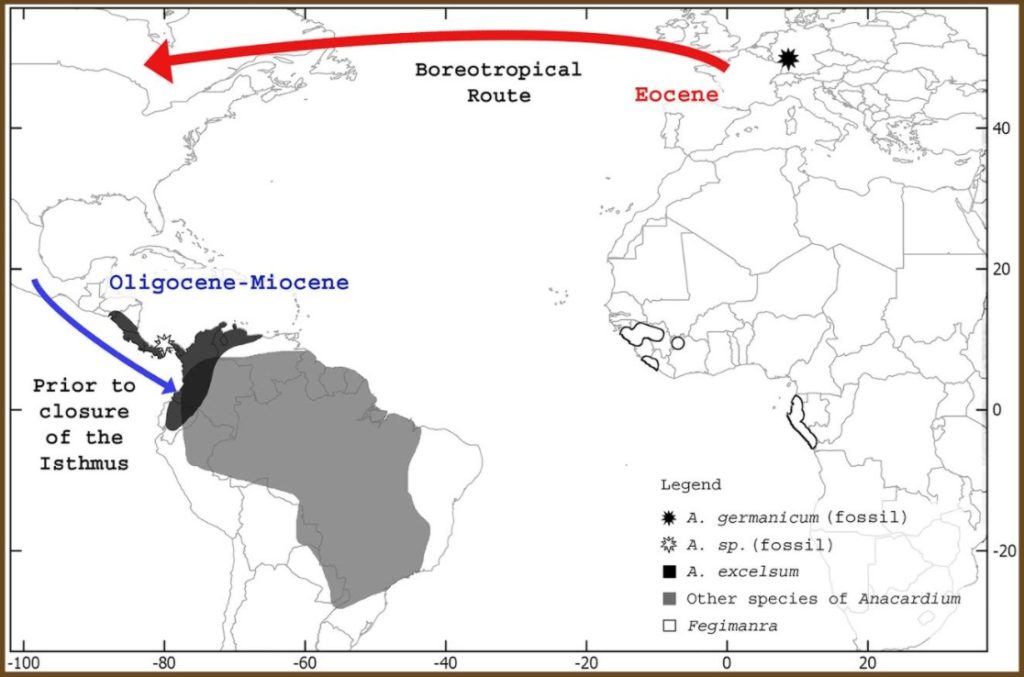The way you go through the Penonome drive-through vaccine line if you come on foot. Seguro Social photo.
Time is…
by Eric Jackson
When you were born to US parents in the Republic of Panama, partly raised in the old Canal Zone, have an entire formal education in the English language and have lived most of your years in Panama the Panagringo cultural mixes can get strange. There are things in the States that always seemed alien to me, which I never embraced. There are things down here to which I am well accustomed, but still seem strange. And then, having seen glimpses of both societies in particular moments there are those impressions that are going to be different from those of a lot of other people. On top of that, this epidemic is hardly the first for humanity or for Panama, but it’s unique in its particulars, by both historical moment and venue.
I had an appointment to get shot today, so set out for Penonome’s Boulevard shopping center. Having ridden two buses and a taxi, I saw this long line of cars on the highway waiting to get through the vaccination drive-through. My arrangements were in order, and I was about 15 minutes early.
Ah, but like the early bird, I got the worm. Some exotic cuisines I do like, but that sort of bird chow I don’t. The lady at the vaccination place told me that notwithstanding the notice that the Health Ministry had sent me by email, the government had failed to deliver the vaccine for that day’s activities. Those cars that were lined up? The ones at the front of the line had appointments set for hours earlier, and chose to wait on the chance that the PRD hacks would come with the vaccine sometime during the day. Come back tomorrow, I was advised.
So, do I get back to my roots, and to which ones, in reacting to that?
The very gringo concept that “Time Is Money,” that I never assimilated in my 28 years in the USA. Even as a lawyer!
And my ancetral roots? There’s a polyglot mix, but the Germanic ones are not of the intolerant of inefficiency stormtrooper stereotype. My Tuetonic ancestors were Amish, not the sorts of folks to get along with the likes of the brownshirts.
On my personal cultural spectrum, “Maybe mañana” suits me well enough. Plus, without getting traumatized about wasted time and bus and taxi fares, I could, and did, mitigate “time is money” losses. Moreover, although traveling without a useful camera, it’s my habit to look around and think about what I see when riding buses and taxis – an important part of chronicling Panama the way that I do it.
So I went into the El Rey at the Boulevard, because even had I not had an appointment to be injected, I needed to make a cat food run on this day anyway. Cat food, cold bottled tea, bread, cheetos to share with canines and felines, a piece of broccoli to go with dinner, the print edition of today’s La Prensa – and off to the other side of the shopping center, which is now the terminal for a lot of Penonome bus routes.
An opportunity to save a little time, and a little money! None of this bus ride to Anton, then another bus ride out to the village. At the Boulevard I got on a Penonome to San Juan de Dios bus, which got me directly back to El Bajito for a buck instead of $1.50 and save me probably a net half-hour of waiting.
So, that settled, I set my eyes and brain to another look at what I saw going out to that side of Penonome. What’s different?
– A guy selling stuff at a traffic light on the Pan-American Highway. Not so weird for Panama. There are even popular songs about it. When I was here as a US resident visiting in Noriega times, and then in the immediate aftermath of the invasion, that part of the informal economy was much more pervasive. In 21st century Penonome it hasn’t been. But then, the number of roadside stands is also substantially up during the epidemic. In a country without much of a social safety net, and where nearly half of the work force was informal before the virus arrived, ever more people are selling on the street or on the roadside to survive. Plus, there is more outright panhandling.
– All the closed businesses! And there are a bunch that have been stripped or vandalized. Are those three adjacent stripped places bought by someone who’s going to tear them down and build something new? THAT business with the freshly broken-out window, and the reasonably new car with the smashed-up windows that bears no marks of a collision, apparently belie criminal activity of some sort. Continuing from a plague into hard times, Panama really does need to take some steps, not only law enforcement but including that, to limit the stripping away of this country’s assets. No matter who, if anyone, might hold title.
– Direct foreign investment? That’s down and you can read all about it in almost any medium that covers such things. However, all these brave Panamanian souls are investing in businesses here. New bus routes. Fruit and vegetable stands. Handicraft stalls. Franchises of relatively new Panamanian chains, like the coffee shop at the Boulevard. Small business has taken a terrible beating from the epidemic here and a lot of the new efforts may not survive. But there are new leaves popping up on society’s living fence.
Contact us by email at fund4thepanamanews@gmail.com
To fend off hackers, organized trolls and other online vandalism, our website comments feature is switched off. Instead, come to our Facebook page to join in the discussion.
These links are interactive — click on the boxes






